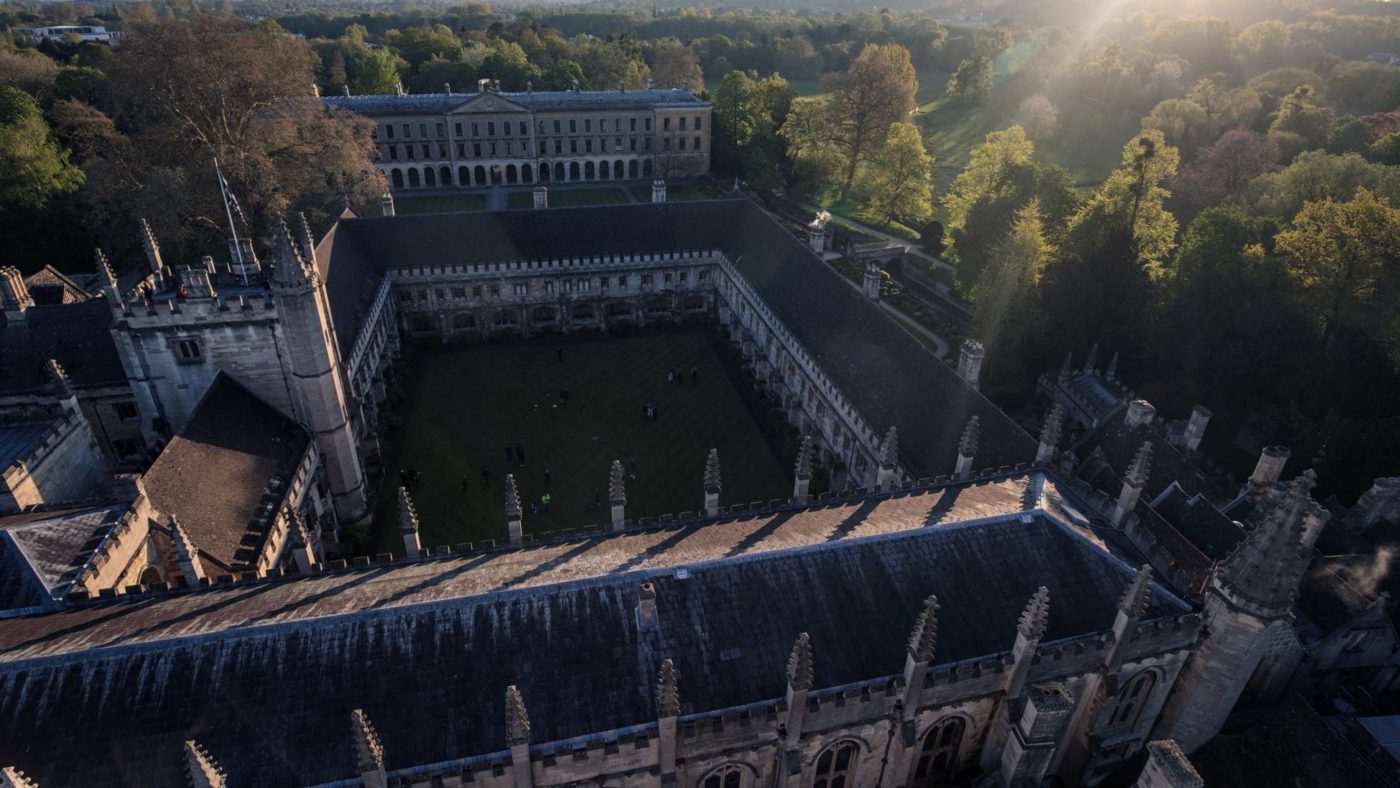To tune into Good Morning Britain this morning was to witness the power of education to transform lives. Some 41 teenagers from a school in one of the UK’s most deprived areas stood proudly in front of the cameras to celebrate their offers to study at Oxford and Cambridge.
All of them are students at Brampton Manor Academy in the east London borough of Newham, which has now been labelled “the East London Eton”. Although it is academically selective at sixth form, two thirds of Brampton’s pupils speak a first language other than English and half are on free school meals. By any standard, theirs is an impressive achievement.
Some of the individual stories are pretty remarkable too: one of the 41, Rama Rustom, is a refugee who only arrived in the UK from Saudi Arabia in 2013 She is now on course to read English at Oxford, even though it’s not even her first language. Another of the girls has been living in care since the age of 14 and talked about ringing “both her mums”, biological and foster, when she got her offer from Oxford.
The school’s executive principal, Dr Dayo Olukoshi, speaks of a “a strong culture of high expectations that runs through everything we do here”. That idea of expecting the best of pupils is reinforced by an honours board listing former pupils who have gone to study at Oxbridge.
It’s not just about belief, of course. Brampton hires more teachers than they strictly need to give them more time with students and has used cash from the Government’s Pupil Premium to build a dedicated study centre, open from 6am. They also buy pupils their textbooks to make sure they have the resources they need to succeed. And although the Oxbridge pupils will make the most headlines, arguably more impressive is the fact that 90 per cent of pupils go on to university – the highest progression rate for any state school in the country.
It’s a very similar story over at Harris Westminster, another sixth form academy which prioritises pupils from the poorest backgrounds. Some 37 of its pupils have Oxbridge offers – one in seven of the entire year’s cohort. Both schools show that, with the right leadership, state schools are capable of replicating the academic performance of the elite private schools that traditionally dominate the academic league tables.
Brampton’s success is a rejoinder to those who insist Oxford and Cambridge should have a quota system for students from BAME backgrounds, as well as to Andrew Adonis and his regressive idea of colleges dedicated to disadvantage students. Here is a cohort made up almost entirely of BAME teenagers succeeding because they have been told from the off that they were right for the very best universities. Quotas, by definition, only treat the symptoms of a problem, without getting to the root cause.
One of the most striking aspects of Brampton’s success is the sheer number of pupils they put forward for Oxbridge — 130 in total. The importance of putting forward more pupils from poorer backgrounds becomes startlingly clear if you look at Oxbridge admissions since 2013. Four years ago there were 1,070 applicants from pupils in the bottom 40 per cent of the income distribution. Of those only 179 were given an offer. Fast-forward to 2018 and there were 1,660 applicants, of whom 269 were admitted.
Far too often we hear reports about teenagers from disadvantaged backgrounds simply not applying to the best universities because they think they will not fit in. Changing that perception — which George W Bush once memorably described as “the soft bigotry of low expectations” — should be at the heart of getting more pupils from poor backgrounds into higher education.
Good news stories like Brampton Manor Academy have a political edge to them. The Labour Party’s policy at the moment is to stop schools converting to academy status, though to leave those that are already academies alone. For a certain type of leftwinger, academies represent the very worst of the Blair years, and the more uniform state education is, the better. Where some see parental choice, the Corbynite Labour party sees “fragmentation”.
Shadow Education Secretary Angela Rayner has been pretty explicit about Labour’s plans, saying that she wants to “use our time in government to bring all publicly funded schools back into the mainstream public sector, with a common rulebook and under local democratic control”. Of course “democratic” in this kind of Labour-speak always means control by a government functionary.
This policy flies in the face of the evidence, which suggests that greater independence is good for schools and the pupils studying there.
Ultimately, politicians of all stripes should learn from success stories like Brampton and Harris Westminster, where success is down to tried and tested ingredients: high standards, unapologetically high expectations and good, old-fashioned hard work.


